In recent years, the trade relationship between China and Mexico has witnessed significant growth. This burgeoning trade connection is driven by the increasing demand for Chinese goods such as electronics, machinery, automobiles, and textiles in the Mexican market. Conversely, Mexico exports agricultural products and minerals to China. The role of shipping agents cannot be overstated in such an intricate international trade environment. In this blog, we will delve into the vital role shipping agents play in facilitating this trade. We will explore their definitions, primary responsibilities, and the key services they provide.
Related Article : Shipping From China TO Mexico
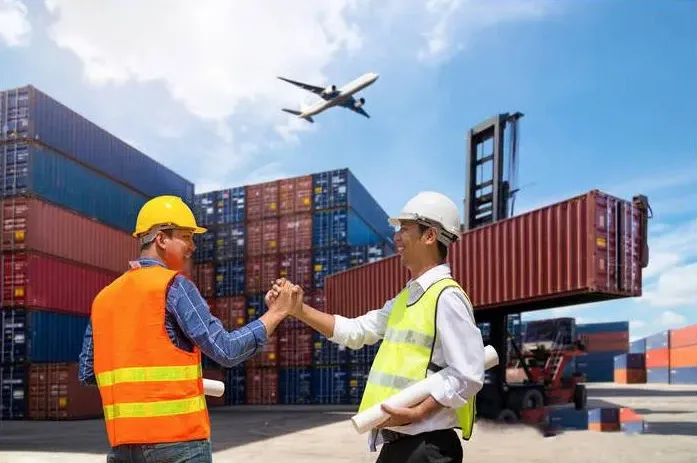
Role of Shipping Agents
A shipping agent, often referred to as a freight forwarder, serves as an intermediary between the exporter and the various transportation services. Their primary responsibilities include:
- Booking Cargo Space: Ensuring that sufficient space is available for the shipment in the chosen mode of transportation, be it Ocean Freight, air freight, or land transport.
- Documentation: Handling all necessary paperwork, including bills of lading, customs declarations, and insurance documentation.
- Cargo Tracking: Keeping track of the shipment from the point of origin to the destination to ensure timely delivery.
- Customs Clearance: Facilitating the smooth clearance of goods through customs by ensuring that all regulations and requirements are met.
- Risk Management: Providing insurance services and other risk management solutions to safeguard the shipment against potential losses or damages.
Key Services Provided by Shipping Agents
Shipping agents offer a wide range of services to ensure that the shipping process is seamless and efficient. These services include:
- Freight Consolidation: Combining multiple small shipments into a single larger shipment to reduce costs and improve efficiency.
- Warehousing: Offering warehouse services to store goods temporarily before they are shipped out or after they arrive at the destination.
- Cargo Insurance: Providing comprehensive insurance coverage to protect the cargo against unforeseen events such as theft, damage, or loss during transit.
- Logistics Management: Planning and coordinating the entire logistics process, from picking up the goods at the supplier’s location to delivering them to the final destination.
- Customs Brokerage: Managing the customs clearance process to ensure that the goods comply with all local and international regulations.
- Supply Chain Consulting: Offering expert advice on optimizing the supply chain to reduce costs and improve efficiency.
By leveraging these services, businesses can focus on their core activities while leaving the complexities of international shipping to the experts. Collaborating with a reputable shipping agent like Dantful International Logistics ensures that the shipping process is handled with professionalism, cost-effectiveness, and a high level of quality.
Why Use a Shipping Agent?
Shipping goods internationally can be a complex and daunting task. Engaging a shipping agent offers several advantages, making the process more streamlined and efficient. Shipping agents possess the expertise and resources to handle logistics, documentation, and compliance with ease, allowing businesses to concentrate on their core operations. Here are some key reasons to use a shipping agent:
- Expert Navigation of Regulations: International shipping involves navigating a myriad of regulations and compliance requirements. A shipping agent ensures that all necessary paperwork, including customs declarations and insurance documentation, is in order.
- Cost-Effectiveness: Shipping agents have established relationships with carriers and can negotiate better rates for Ocean Freight, air freight, and land transport, saving businesses money.
- Risk Management: Offering comprehensive insurance services, shipping agents help mitigate risks associated with international shipping, protecting the goods against potential losses or damages.
- Efficiency: By handling all aspects of the shipping process, from booking cargo space to customs clearance, shipping agents ensure timely and efficient delivery of goods.
- Supply Chain Optimization: Shipping agents provide valuable insights and solutions for optimizing the supply chain, leading to increased efficiency and reduced costs.
Choosing a Shipping Agent for China to Mexico Route
Factors to Consider When Selecting an Agent
Selecting the right shipping agent for the China to Mexico trade route is crucial for ensuring a smooth and efficient shipping process. Here are some essential factors to consider:
- Experience and Track Record: A shipping agent with a proven track record in handling shipments along the China to Mexico route will have the necessary expertise to navigate any challenges that may arise. Check their history of successful deliveries and client testimonials.
- Local Knowledge: Understanding the local regulations, customs procedures, and market dynamics in both China and Mexico is essential. A shipping agent with local knowledge can expedite the customs clearance process and avoid potential delays.
- Marketing Expertise: An agent with strong marketing expertise can provide valuable insights into market trends, helping businesses make informed decisions about shipping strategies.
- Reputation and Professionalism: Look for a shipping agent with a solid reputation for professionalism and reliability. Reading reviews and seeking recommendations can help gauge their credibility.
- Specialization: Some shipping agents specialize in specific types of cargo, such as perishable goods, hazardous materials, or oversized shipments. Choosing an agent with the right specialization ensures that your specific shipping needs are met.
- Value-Added Services: Consider the additional services offered by the shipping agent. These may include:
- Warehousing and Distribution: Providing storage solutions and managing the distribution of goods.
- Cargo Insurance: Offering comprehensive coverage to protect against potential risks.
- Tracking and Visibility Solutions: Implementing advanced tracking systems to provide real-time visibility of the shipment’s status.
Importance of Experience and Expertise in This Specific Trade Lane
The China to Mexico trade lane presents unique challenges and opportunities. Partnering with a shipping agent experienced in this specific route is vital for several reasons:
- Navigating Regulatory Hurdles: Experienced agents are well-versed in the regulatory requirements of both countries, ensuring that shipments comply with all local and international regulations.
- Optimizing Shipping Routes: Knowledgeable agents can identify the most efficient shipping routes and methods, whether through Ocean Freight, air freight, or a combination of both, to reduce transit times and costs.
- Handling Customs Complexities: With a deep understanding of the customs procedures in China and Mexico, experienced agents can expedite the customs clearance process, avoiding unnecessary delays.
- Managing Risks: An agent with expertise in this trade lane can anticipate potential risks and implement effective risk management strategies, including providing comprehensive insurance services.
- Leveraging Local Contacts: Established agents often have strong networks and relationships with local authorities, carriers, and service providers, facilitating smoother operations and quicker resolutions to any issues that may arise.
By choosing a shipping agent like Dantful International Logistics, businesses can leverage the agent’s extensive experience and expertise in the China to Mexico trade lane. This ensures a reliable, efficient, and cost-effective shipping process, allowing businesses to focus on their growth and success.
Dantful International Logistics Services:
- Dantful Ocean Freight Services
- Air Freight From China
- Amazon FBA Freight Forwarding
- WAREHOUSE Services
- One-Stop Customs Clearance Solution
- Cargo Insurance Services in China
- DDP Shipping Services By Dantful Logistics
- Out of Gauge Cargo Transportation Shipping Services
Shipping Methods from China to Mexico
When shipping goods from China to Mexico, businesses have several options to choose from, each with its own advantages and considerations. Understanding these methods can help optimize cost, time, and efficiency in the shipping process.
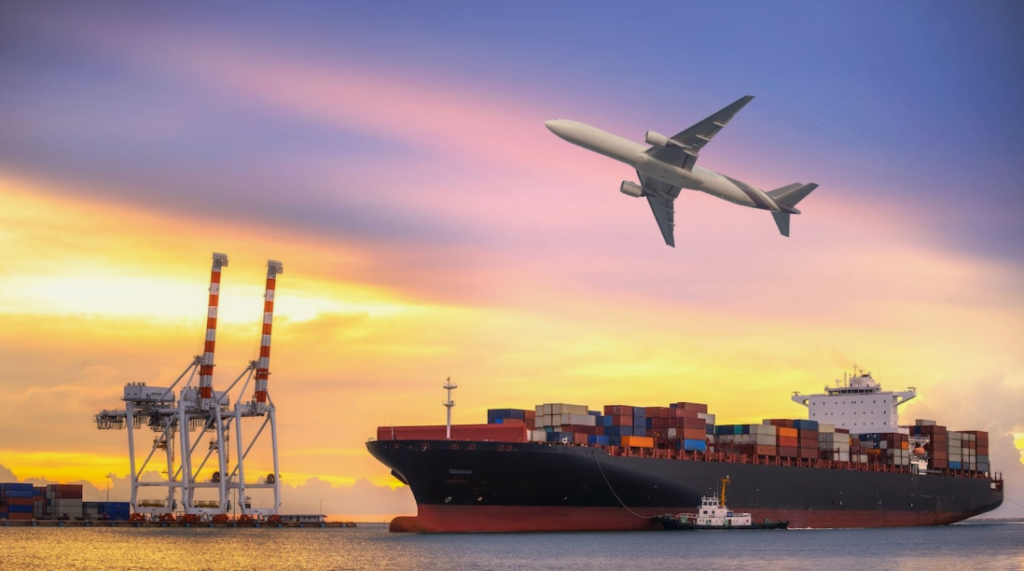
Ocean Freight (FCL and LCL)
Ocean Freight is one of the most cost-effective methods for transporting large volumes of goods over long distances. There are two primary options within ocean freight:
- Full Container Load (FCL): This method involves shipping a fully loaded container that is exclusively used by one shipper. It is ideal for large shipments as it offers better security, faster transit times, and often lower costs per unit of cargo.
- Less than Container Load (LCL): For smaller shipments that do not require an entire container, LCL allows multiple shippers to share the container space. This method is cost-effective for smaller volumes but may involve longer transit times due to the consolidation and deconsolidation processes.
Air Freight
For businesses requiring faster delivery times, Air Freight is the preferred option. Although more expensive than ocean freight, air freight significantly reduces transit times, making it suitable for high-value or time-sensitive goods. Air freight also offers higher security and is less prone to delays caused by weather or port congestion.
Express Courier Services
Express Courier Services are ideal for small, urgent shipments. Companies like DHL, FedEx, and UPS offer door-to-door delivery with guaranteed transit times. This method is generally the most expensive but provides unparalleled convenience and speed, making it suitable for critical deliveries and e-commerce shipments.
Multimodal Options
Multimodal Shipping combines multiple modes of transport—such as ocean, air, and land—to offer a balance of cost and speed. This method is highly flexible and can be tailored to meet specific requirements, optimizing both time and cost. For example, goods might be shipped by ocean freight to a major port and then transported by air or land to the final destination.
READ MORE:
- Shipping From China to the United States
- Shipping From China TO Canada
- Shipping From China TO Mexico
- Shipping From China to Panama
- Shipping From China to Costa Rica
- Shipping From China to Brazil
- Shipping From China TO Colombia
- Shipping From China to Jamaica
- Shipping From China to Venezuela
Key Ports and Airports
Understanding the major ports and airports in China and Mexico is essential for efficient logistics planning. These entry and exit points facilitate the smooth flow of goods between the two countries.
Major Chinese Ports and Airports for Exports
China boasts some of the world’s largest and busiest ports and airports, serving as critical hubs for international trade.
- Ports:
- Port of Shanghai: The world’s busiest container port, handling a significant portion of China’s exports.
- Port of Shenzhen: A major port located in one of China’s most dynamic economic zones.
- Port of Ningbo-Zhoushan: Known for its extensive cargo handling capabilities.
- Port of Guangzhou: A crucial gateway for trade in southern China.
- Airports:
- Beijing Capital International Airport: One of the busiest airports in the world, offering extensive cargo services.
- Shanghai Pudong International Airport: A major hub for air freight, connecting China to international markets.
- Hong Kong International Airport: Renowned for its efficiency and extensive cargo handling facilities.
- Guangzhou Baiyun International Airport: A key airport for both passenger and cargo traffic.
Key Entry Points in Mexico
Mexico’s strategic location and well-developed infrastructure make it a vital trading partner for China. The country features several key ports and airports that facilitate the import and export of goods.
- Ports:
- Port of Manzanillo: The busiest port in Mexico, handling the bulk of the country’s Pacific Ocean cargo.
- Port of Veracruz: A major port on the Gulf of Mexico, crucial for trade with Europe and the Americas.
- Port of Lázaro Cárdenas: Known for its deep-water capabilities and extensive container handling facilities.
- Airports:
- Mexico City International Airport: The main international airport in Mexico, offering extensive cargo services.
- Guadalajara International Airport: A key cargo hub in the western part of the country.
- Monterrey International Airport: Serving the industrial northern region of Mexico, crucial for trade with the United States.
By understanding and leveraging these key ports and airports, businesses can optimize their logistics strategies, ensuring efficient and cost-effective shipping from China to Mexico. Partnering with a reputable shipping agent like Dantful International Logistics can further enhance this process, providing expert guidance and comprehensive services tailored to meet specific shipping needs.
Documentation and Customs Procedures
Efficient documentation and smooth customs procedures are critical to ensure that shipments from China to Mexico are processed without delays. Understanding the required documents and customs processes can help businesses avoid common pitfalls and expedite the shipping process.
Required Documents for China-Mexico Shipments
When shipping goods from China to Mexico, several key documents are required to comply with both countries’ regulations. These include:
- Commercial Invoice: A detailed invoice from the seller to the buyer, listing the goods, their value, and terms of sale.
- Bill of Lading (B/L): A document issued by the carrier that acknowledges receipt of cargo for shipment.
- Packing List: A detailed list of the contents of the shipment, including dimensions, weight, and packaging details.
- Certificate of Origin: A document certifying the country where the goods were manufactured, which may be required to qualify for preferential tariff rates.
- Import Licenses: Depending on the type of goods, specific import licenses may be required by Mexican authorities.
- Customs Declaration: A form submitted to customs authorities detailing the nature, quantity, and value of the goods being imported.
- Insurance Certificate: Proof of insurance coverage for the shipment.
Overview of Customs Clearance Process in Mexico
The customs clearance process in Mexico involves several steps to ensure that imported goods comply with local regulations. These steps include:
- Pre-Arrival Processing: Submitting necessary documents to Mexican customs authorities before the shipment arrives to expedite the clearance process.
- Customs Inspection: Upon arrival, customs officers may inspect the shipment to verify the contents and ensure compliance with regulations.
- Payment of Duties and Taxes: Importers must pay any applicable duties, taxes, and fees before the goods can be released.
- Release of Goods: Once all requirements are met, customs authorities will release the goods for delivery to their final destination.
Mexico employs a Customs Automated System (SAAI M3) to facilitate the electronic processing of customs declarations and streamline the clearance process.
IMMEX Program and Its Benefits
The IMMEX (Industria Manufacturera, Maquiladora y de Servicios de Exportación) program is a Mexican government initiative designed to promote foreign investment and enhance the competitiveness of Mexican manufacturers. Key benefits of the IMMEX program include:
- Temporary Importation: Companies can temporarily import raw materials, machinery, and equipment without paying duties or taxes, provided that the finished products are exported within a specified timeframe.
- VAT Deferral: The program allows for the deferral of Value Added Tax (VAT) on temporary imports, improving cash flow for participating companies.
- Streamlined Procedures: IMMEX participants benefit from simplified customs procedures, reducing administrative burdens and speeding up the import-export process.
- Increased Competitiveness: By lowering production costs, the IMMEX program helps Mexican manufacturers compete more effectively in the global market.
Challenges in China-Mexico Shipping
Shipping goods from China to Mexico presents several challenges that businesses must navigate to ensure a smooth and efficient process.
Language Barriers
Effective communication is crucial in international trade. Language barriers can lead to misunderstandings, errors in documentation, and delays. Partnering with a shipping agent fluent in both Mandarin and Spanish can help mitigate these issues.
Understanding Cross-Border Protocols
Each country has its own set of cross-border protocols and regulations. Understanding these protocols is essential to avoid compliance issues and potential delays. Engaging a shipping agent with expertise in China-Mexico trade can provide valuable guidance.
Navigating Customs Regulations
Customs regulations in China and Mexico can be complex and subject to frequent changes. Staying updated with the latest regulations and ensuring compliance can be challenging. Using customs clearance services provided by experienced shipping agents can help navigate these complexities.
FAQs
- What is the typical transit time for ocean freight from China to Mexico?
- Transit times can vary depending on the specific ports involved, but generally, ocean freight takes approximately 20-30 days.
- Are there any specific import restrictions for goods shipped from China to Mexico?
- Yes, certain goods may be subject to import restrictions or require special permits. It is important to consult with a shipping agent or customs broker to ensure compliance.
- How can I track my shipment from China to Mexico?
- Many shipping agents offer advanced tracking systems that provide real-time visibility of your shipment’s status. Ensure your agent provides such a service.
- What are the advantages of using air freight over ocean freight?
- Air freight offers faster transit times and higher security, making it suitable for high-value or time-sensitive shipments.
- What documents are required for customs clearance in Mexico?
- Required documents include the commercial invoice, bill of lading, packing list, certificate of origin, import licenses, customs declaration, and insurance certificate.
References
- World Bank: “Doing Business 2020: Mexico” (https://www.doingbusiness.org/en/reports/global-reports/doing-business-2020)
- UNCTAD: “Review of Maritime Transport 2020” (https://unctad.org/webflyer/review-maritime-transport-2020)
- Mexican Government: “IMMEX Program Overview” (https://www.gob.mx/se/acciones-y-programas/programa-immex)
- International Trade Administration: “Mexico – Country Commercial Guide” (https://www.trade.gov/country-commercial-guides/mexico)
- International Air Transport Association (IATA): “Air Freight Market Analysis” (https://www.iata.org/en/publications/economics/freight-monthly-analysis/)
- World Customs Organization: “Customs Procedures in Mexico” (http://www.wcoomd.org/en/topics/facilitation/instrument-and-tools/tools/~/media/EA0B1F4AD9BF474E8F6CA3D5D7B7231E.ashx)

Young Chiu is a seasoned logistics expert with over 15 years of experience in international freight forwarding and supply chain management. As CEO of Dantful International Logistics, Young is dedicated to providing valuable insights and practical advice to businesses navigating the complexities of global shipping.



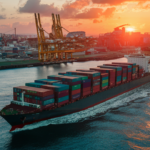
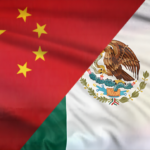


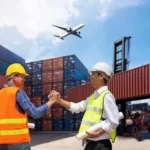



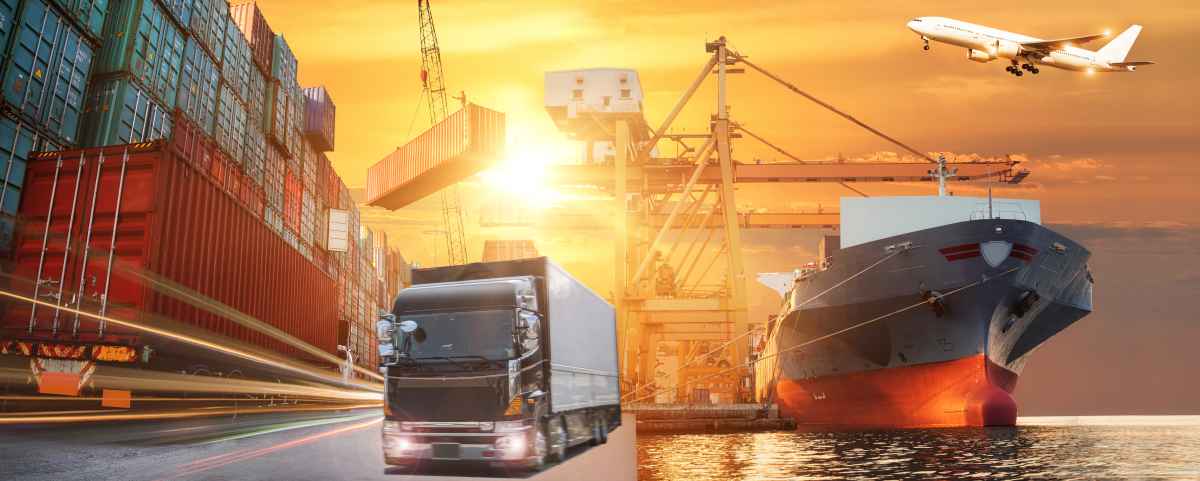
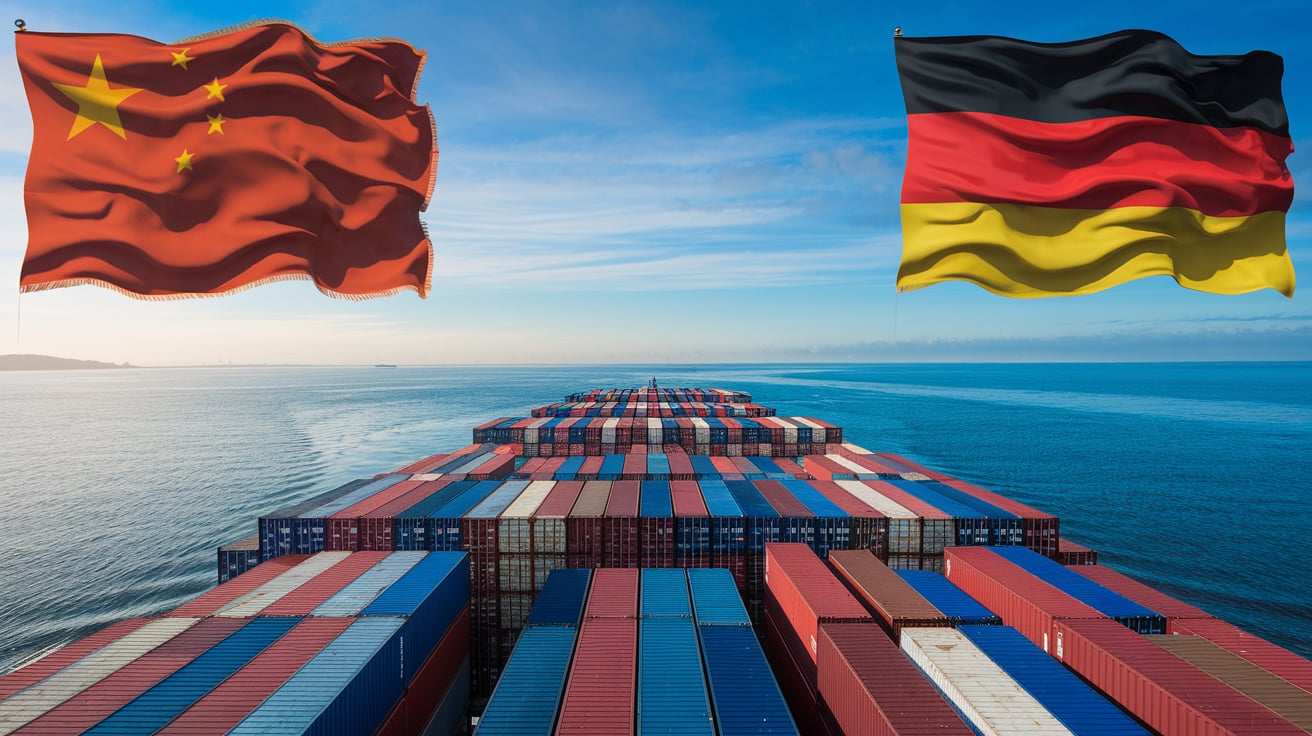
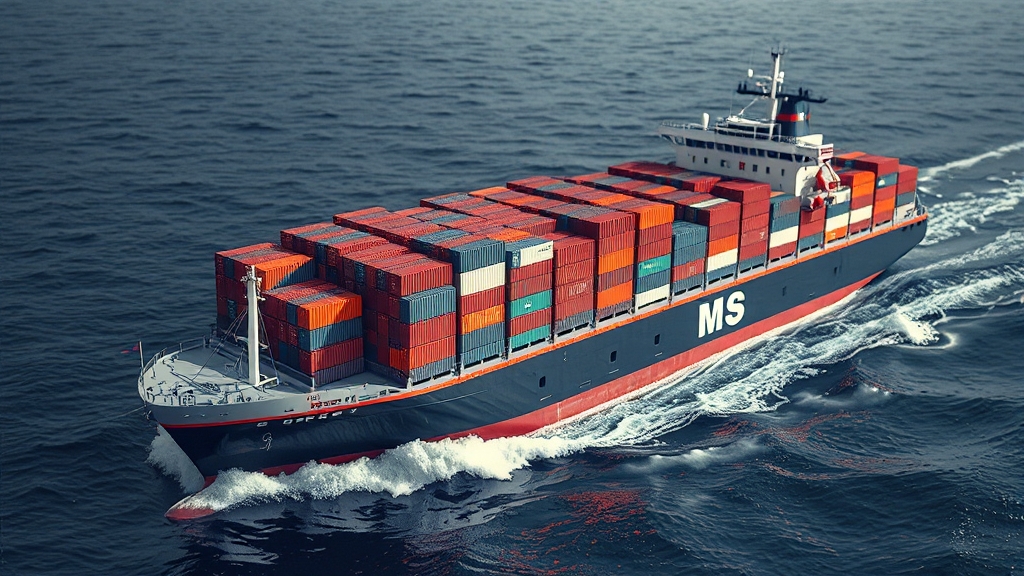
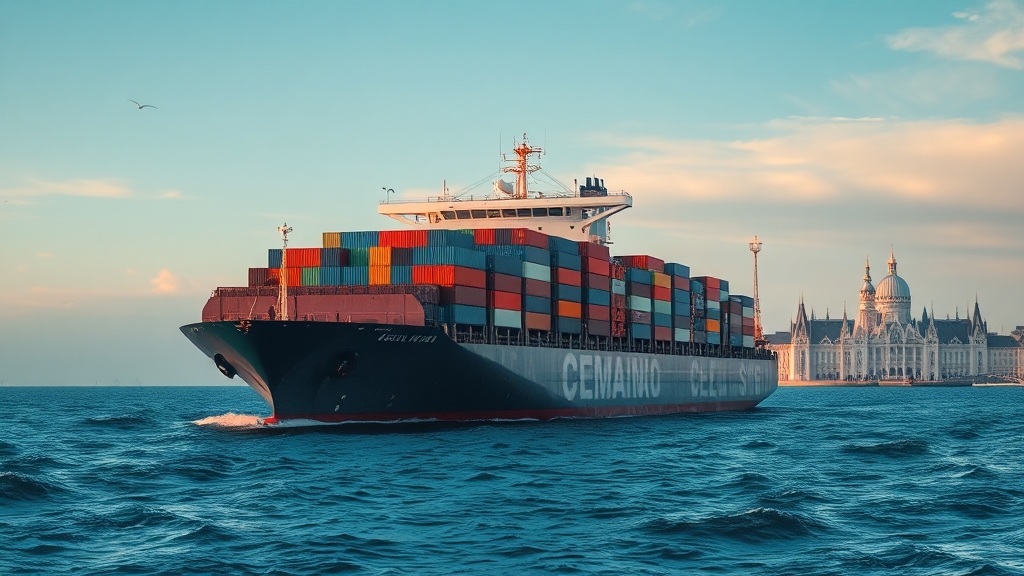
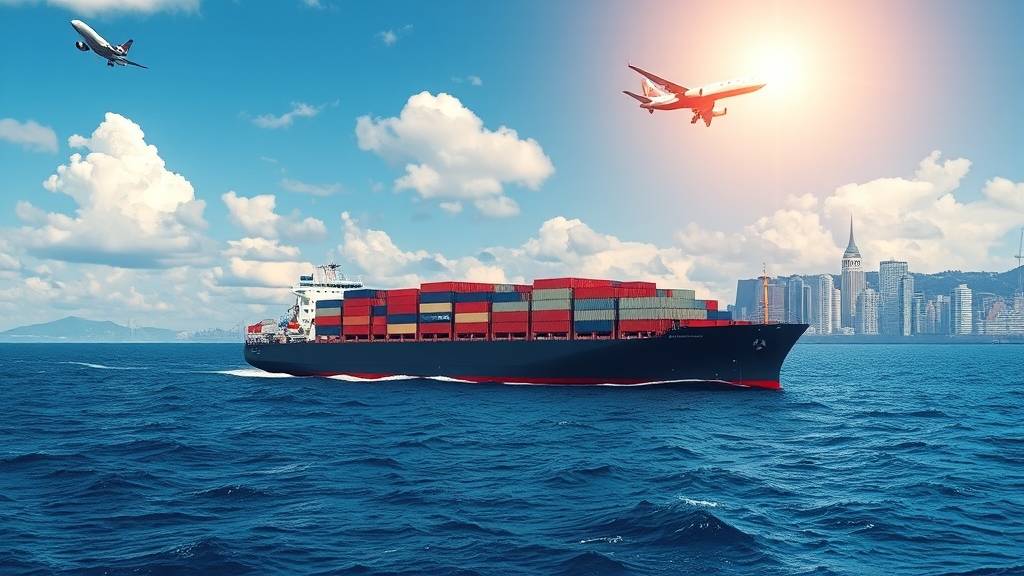





 Afrikaans
Afrikaans Shqip
Shqip አማርኛ
አማርኛ العربية
العربية Հայերեն
Հայերեն Azərbaycan dili
Azərbaycan dili Euskara
Euskara Беларуская мова
Беларуская мова বাংলা
বাংলা Bosanski
Bosanski Български
Български Català
Català Cebuano
Cebuano Chichewa
Chichewa 简体中文
简体中文 繁體中文
繁體中文 Corsu
Corsu Hrvatski
Hrvatski Čeština
Čeština Dansk
Dansk Nederlands
Nederlands English
English Esperanto
Esperanto Eesti
Eesti Filipino
Filipino Suomi
Suomi Français
Français Galego
Galego ქართული
ქართული Deutsch
Deutsch Ελληνικά
Ελληνικά Kreyol ayisyen
Kreyol ayisyen Harshen Hausa
Harshen Hausa Ōlelo Hawaiʻi
Ōlelo Hawaiʻi עִבְרִית
עִבְרִית हिन्दी
हिन्दी Hmong
Hmong Magyar
Magyar Íslenska
Íslenska Igbo
Igbo Bahasa Indonesia
Bahasa Indonesia Gaeilge
Gaeilge Italiano
Italiano 日本語
日本語 Basa Jawa
Basa Jawa ಕನ್ನಡ
ಕನ್ನಡ Қазақ тілі
Қазақ тілі ភាសាខ្មែរ
ភាសាខ្មែរ 한국어
한국어 كوردی
كوردی Кыргызча
Кыргызча ພາສາລາວ
ພາສາລາວ Latin
Latin Latviešu valoda
Latviešu valoda Lietuvių kalba
Lietuvių kalba Lëtzebuergesch
Lëtzebuergesch Македонски јазик
Македонски јазик Malagasy
Malagasy Bahasa Melayu
Bahasa Melayu മലയാളം
മലയാളം Maltese
Maltese Te Reo Māori
Te Reo Māori मराठी
मराठी Монгол
Монгол ဗမာစာ
ဗမာစာ नेपाली
नेपाली Norsk bokmål
Norsk bokmål پښتو
پښتو فارسی
فارسی Polski
Polski Português
Português ਪੰਜਾਬੀ
ਪੰਜਾਬੀ Română
Română Русский
Русский Samoan
Samoan Gàidhlig
Gàidhlig Српски језик
Српски језик Sesotho
Sesotho Shona
Shona سنڌي
سنڌي සිංහල
සිංහල Slovenčina
Slovenčina Slovenščina
Slovenščina Afsoomaali
Afsoomaali Español
Español Basa Sunda
Basa Sunda Kiswahili
Kiswahili Svenska
Svenska Тоҷикӣ
Тоҷикӣ தமிழ்
தமிழ் తెలుగు
తెలుగు ไทย
ไทย Türkçe
Türkçe Українська
Українська اردو
اردو O‘zbekcha
O‘zbekcha Tiếng Việt
Tiếng Việt Cymraeg
Cymraeg יידיש
יידיש Yorùbá
Yorùbá Zulu
Zulu